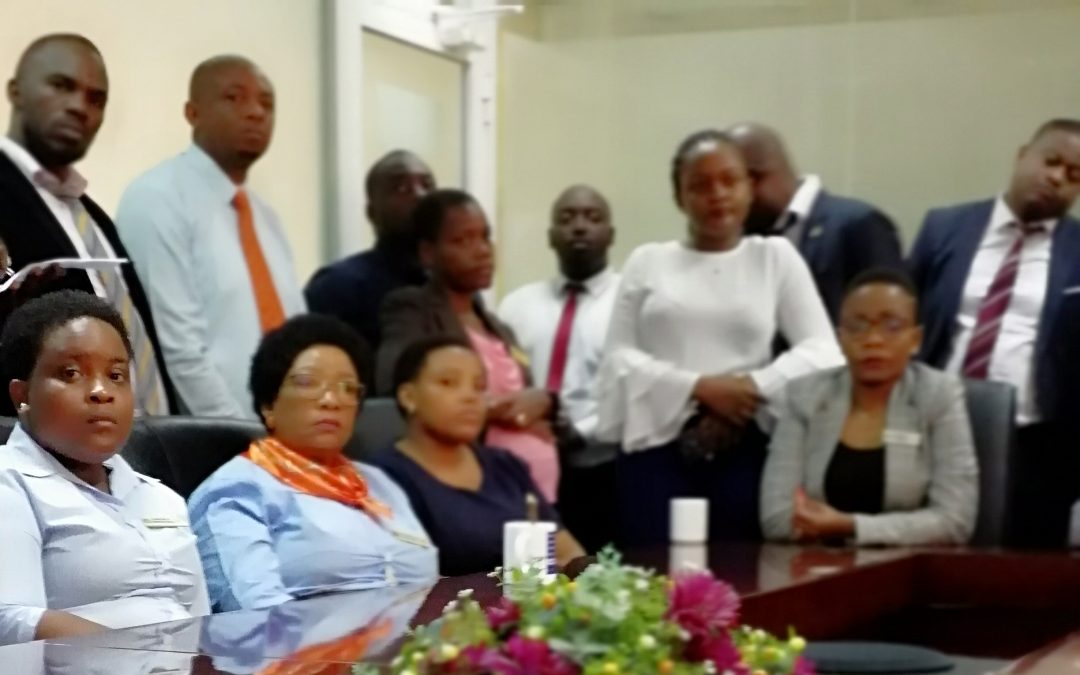Photo courtesy of G.L.P.
Visions from the field: SOCIEUX+ cooperation in Tanzania
Today, the United Republic of Tanzania is a peaceful and populous state with ambitions to become a middle-income country in the next decade. Tanzania is one of the African countries where the population is expected to boom in coming years: from 55 million inhabitants today, the population should more than double to 135 million inhabitants by 2050. This will necessarily increase the urgency of creating jobs which not only provide income for the active adult population but are also worthy, safe, and generate tangible social protections.
The Workers Compensation Fund (WCF), which recently requested the support of SOCIEUX+ to facilitate technical assistance exchanges with European public experts, is a fairly recent institution. Established by law in 2015, WCF is tasked with insuring workers in the formal sector (a minority of the active working population, to be sure) in the event of accidents or occupational illnesses, and compensating dependents in the event workers die while performing their duties.
The insurance coverage provided by WCF essentially relates to two areas: the payment of pensions to victims of illness or injury at work, who are temporarily or permanently prevented from working; and the promotion of a path to medical, professional (training for new tasks), and social reintegration for people who are temporarily unable to work.
In its first three years of activity, WCF has received more than 5,000 notifications of work-related accidents or illnesses. The numbers are not higher for two reasons: the recent establishment of WCF and the continued adherence to insurance schemes by companies and workers; and, the very high level of informal work in Tanzania. Within the East African community (which includes six countries – Burundi, Kenya, Rwanda, South Sudan, Tanzania, and Uganda), only Tanzania has established a compensation fund fully based on insurance rather than employer liability, which provides pensions to those with work-related injuries and/or illnesses. WCF is therefore highly motivated to become a reference institution at the regional level and, from what I have seen, they have made substantial steps in this direction.
The SOCIEUX+ mission in January 2020 involved, in addition to myself, a senior expert from DGUV (Deutsche Gesetzliche Unfallversicherung; German Social Accident Insurance), which established a memorandum of understanding with WCF and was an official partner on WCF’s request for technical assistance to SOCIEUX+. The fact-finding mission aimed to establish the conditions and modalities of future technical assistance. Even though the details of further cooperation among SOCIEUX+, DGUV, and WCF are to be defined in the coming weeks, activities will focus on the aforementioned rehabilitation functions, and will focus on strategic planning and strengthening management capacity to handle the various rehabilitation measures and tools implemented by WCF.
As usual, the mission sought to involve national partners whose actions and mandates are complementary to WCF such as trade unions, business associations, and the Occupational Safety and Health Association (OSHA), which works to prevent at-work accidents and occupational diseases.
Following the formulation of technical assistance actions, SOCIEUX+ will identify peers among our pool of European public experts who can best achieve the objectives set by WCF and will substantially contribute to the long-term growth of the Tanzanian organization, thus improving insurance coverage for Tanzanian workers now and for many years to come.
Gian Luca Portacolone
SOCIEUX+ Social Protection Coordinator
(SOCIEUX+ 2019-35)
In cooperation with DGUV








